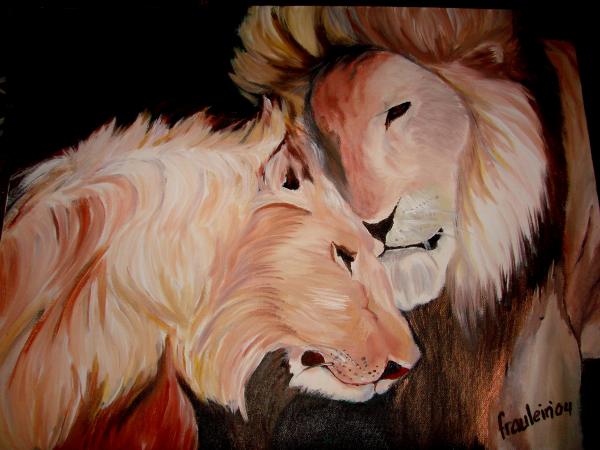
From Ingrid Newkirk, president and co-founder of People For The Ethical Treatment Of Animals (PETA) at the Huffington Post.
Two big and odd news stories about eating animals were in the media this past week: the International Whaling Commission battle that included whaling countries that paid cash and provided prostitutes to sway votes away from protecting whales and an Arizona restaurant that offered lion burgers to celebrate the World Cup playoffs.
Let me start with the lions. People wanted to know where on Earth someone so far from the Serengeti was getting lion meat. The restaurateur's declaration that the meat was from lions raised on a "free-range lion farm" fell flatter than an overbaked soufflé, and even fewer people than bought the lion burgers bought that line. The growling increased to a roar when it turned out that the purveyor of this particular lion meat had been brought up on federal charges for his dealings with other big cats back in 2003.
People soon learned that most lion meat often comes from "canned hunts," the kind you often don't know you are watching on hunting shows when "Jim" appears to be out there in the middle of nowhere, bravely risking being gored, while, in fact, he is actually in a fully fenced compound into which bears, tigers, lions, or other animals have been released. Some of the animals are so tame that they walk up to the shooters, who frequently shoot at them from their padded seats in a jeep only yards away. And where do these places get the lions? Some are discarded pets, bought at auctions after becoming too big for a backyard pen, and some come from zoos with a "surplus" to get rid of, having done nothing to curb the birth of cute cubs, who draw crowds.
The idea that whales might lose their status and lions their hide made people see red and the blogosphere light up. That spoke well of our evolving sensibilities, but we need to keep going in that direction, not just settle for the easy stuff.
The Japanese and Norwegians bristle at our valiant attempts to deprive them of whale steak, people in China shake their heads at our disgust over dog soup, and the Korean restaurants serving live, squirming octopus on a bowl of noodles do not understand why we march outside their premises holding picket signs and quoting studies showing that cephalopods are highly sensitive to pain. Causing needless suffering to any form of life should be out of the question for everyone, but they are justified in pointing a finger at us. That's because, down the road from the restaurants serving lion meat, whale steak, dog soup, and live octopus, you will find other animals on the menu who regularly disappear down gullets without a ruckus.
They are, of course, all animals we do not find so fascinating, perhaps because they have traditionally been introduced to us on a dinner plate with a side of potatoes. They surely valued their lives and loves as much as the animals we are culturally conditioned to eat. In fact, the lions surely suffered less than the animals who make up a "regular" burger or steak, given that they were not prodded and kicked down the ramp to the slaughterhouse as was the pig or cow. And while the whale enjoyed a life with loved ones in the ocean until the harpoon hit, the chicken on the filthy factory farm endured chronic pain from cracked leg bones caused by breeding for increased breast meat and then finally suffered broken wings in a travel crate while being jostled down the highway in an open truck.
In an old book about fancy foods, I found a passage in which vegetarians were described as "sad souls, reduced to eating little more than grass." Among the meals I've eaten recently are the vegan coconut cake at Sublime in Ft. Lauderdale, a seitan "Wellington" at Native Foods in Los Angeles, a Gardein soy "chicken" amandine from Whole foods, "faux gras" from Belgium, spicy tofu and garlic spinach with noodles at Mei Wah in Washington, D.C., mock lobster at Harmony in Philadelphia, and a cornucopia of fresh fruits, vegetables, whole grains, nuts, and bean dishes. My local carry-outs have vegan meals to satisfy any palate. So perhaps, with all the vegan choices we can so easily make, it is time to be a little bit outraged over what befalls the billions of non-whales and non-lions who end up in freezer cases, buckets, boxes, and fast-food wrappers. A free vegetarian/vegan starter kit is downloadable from PETA.org.





1 comment:
Yes it really is amazing what all people can eat. However I much prefer a lovegan diet to a vegan one.
You have a nice blofg there with lots of interesting stuff
Post a Comment